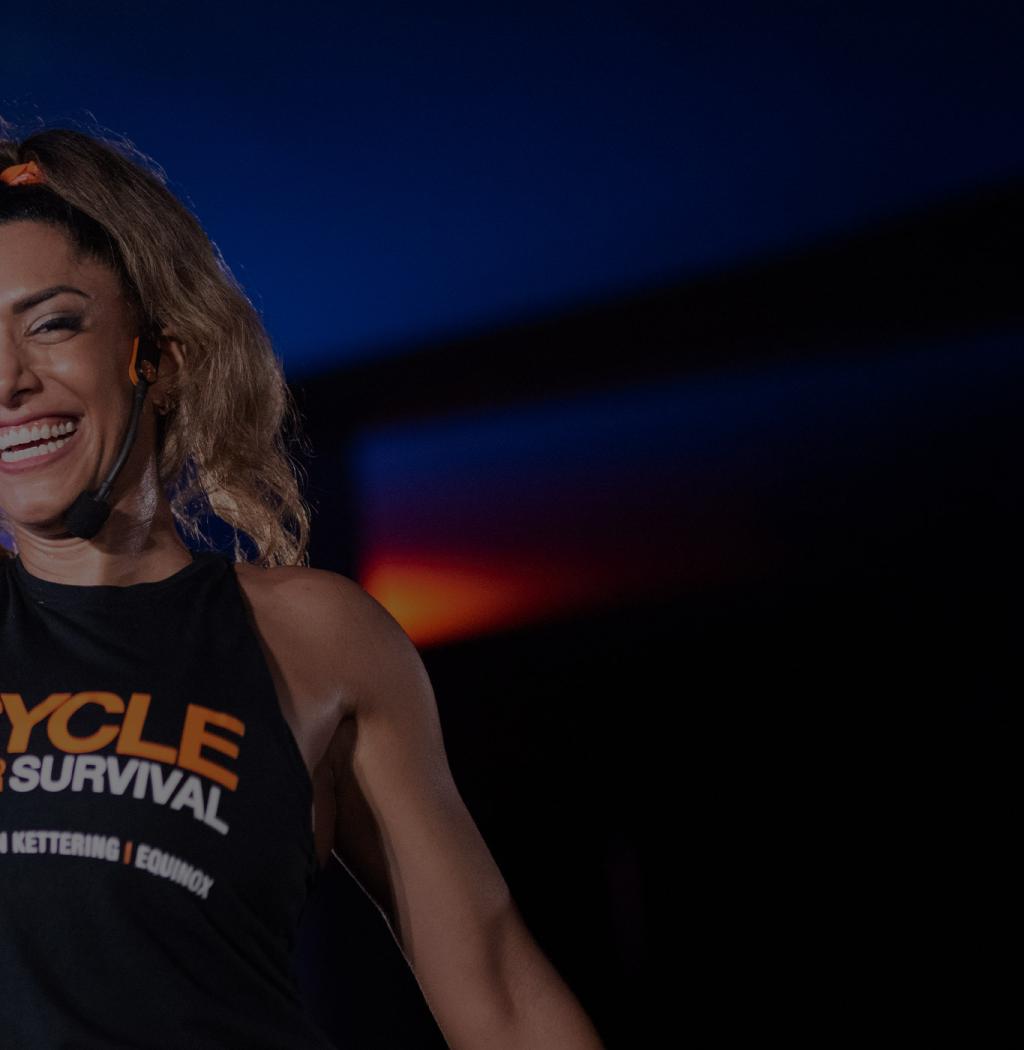
Fuel Innovation With Us
Between December 18 and 31, we’re raising $1 million for cancer vaccine research at MSK.
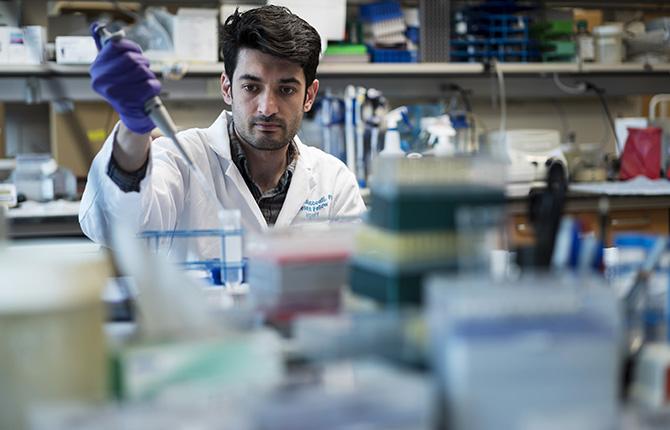
Why Cancer Vaccines?
Vaccines are among the most successful medicines in history. However, effective cancer vaccines have remained an elusive goal in oncology. Vaccines are simple in theory — by exposing a person to a small amount of a foreign agent, like a virus, the immune system learns to respond and eliminate the foreign agent in the future. Thus, vaccines provide long-term protection against a disease by preparing the immune system to target it.
Cancer vaccines similarly teach the immune system what cancer cells “look like,” allowing it to recognize and eliminate cancer cells. For a cancer vaccine to be most effective, it needs to be developed using an antigen — the foreign agent that stimulates the immune system — that is unique to cancer cells and not present in healthy cells. Neoantigens are new proteins that arise from the genetic mutations in tumors that can spark an immune response. Because neoantigens are unique to an individual’s cancer, each cancer vaccine needs to be custom-made for its recipient. Rapid development and safe delivery of vaccines can be done using messenger RNA (mRNA) technology, as recently demonstrated by the success of COVID-19 mRNA vaccines.
The personalized approach of mRNA neoantigen vaccines holds the potential to be an important therapeutic advance. These vaccines could be especially impactful for people with rare cancers, who are often faced with a lack of dedicated treatment options, limited research, and fewer opportunities to participate in clinical trials.
Cancer Vaccine Research at MSK
Developing cancer vaccines has proven to be challenging, but MSK doctors and scientists are making progress toward vaccines that could prevent the recurrence of some forms of the disease. In December 2019, a patient with pancreatic cancer at MSK became the first person to receive a personalized mRNA vaccine in the only clinical trial worldwide to test cancer vaccines for this cancer. The trial’s results made headlines and ignited global interest in discovering whether mRNA vaccines could one day be used to treat cancer. Led by Vinod Balachandran, MD, MSK researchers are continuing to uncover new information to make this potential treatment a reality.
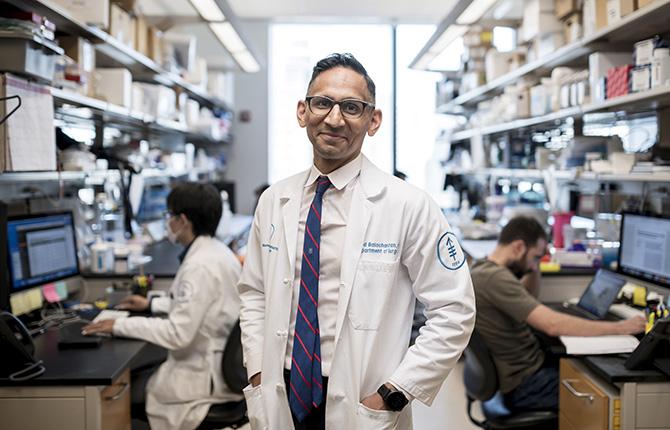
Vinod Balachandran, MD
Dr. Balachandran is a surgeon-scientist at MSK. He specializes in treating people with diseases of the pancreas, bile duct, gallbladder, and liver. He leads a research laboratory in MSK’s Human Oncology and Pathogenesis Program focused on developing new immunotherapies for pancreatic cancer.
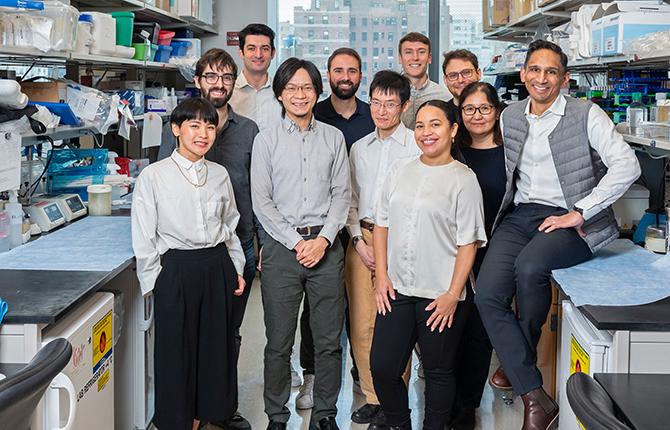
Your Impact
The $1 million raised during the Cycle for Survival Innovators Challenge will allow Dr. Balachandran and his team at MSK to advance their pioneering cancer vaccine research. Every dollar will help answer questions about whether this experimental approach could one day become a new treatment option for people with cancer — questions like whether mRNA vaccines can be safely and effectively used in people who have had chemotherapy and may have compromised immune systems. These complex areas of study require significant resources, including technology, personnel, and laboratory equipment. Your support through Cycle for Survival will help meet that need and drive this innovative therapeutic opportunity.
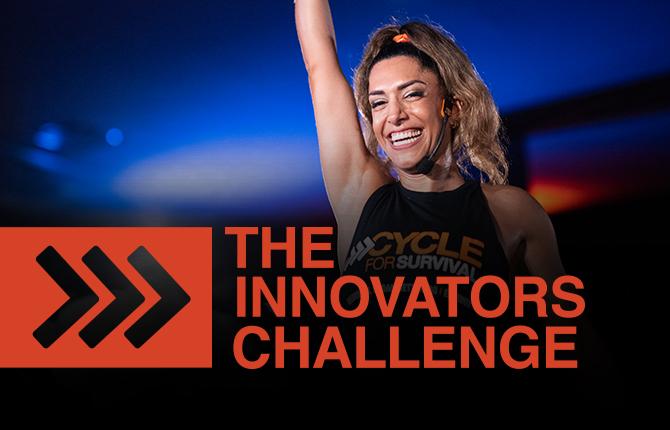
Spread the Word
Download and share this resource to let your supporters know about the Innovators Challenge and how their donations will help accelerate progress in rare cancer research at MSK.
